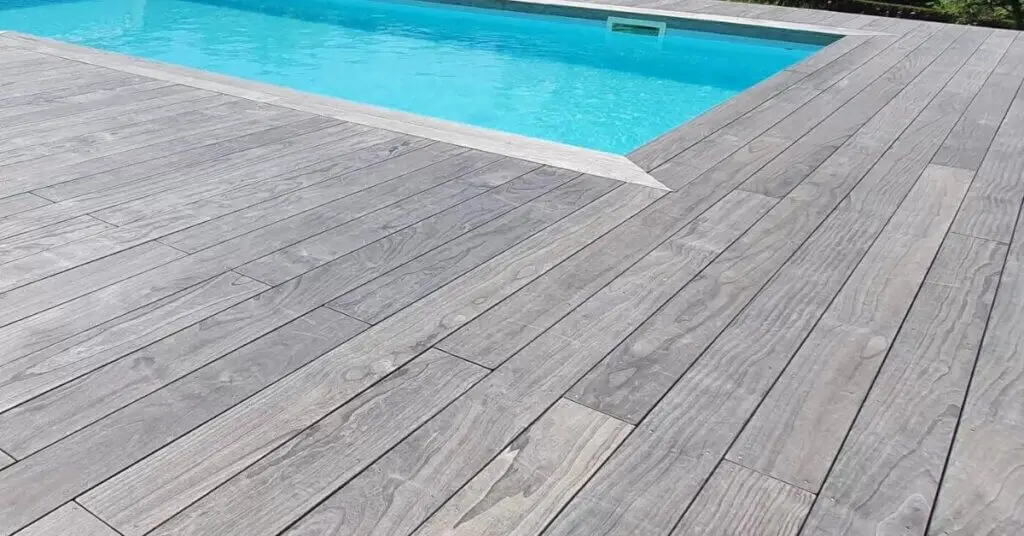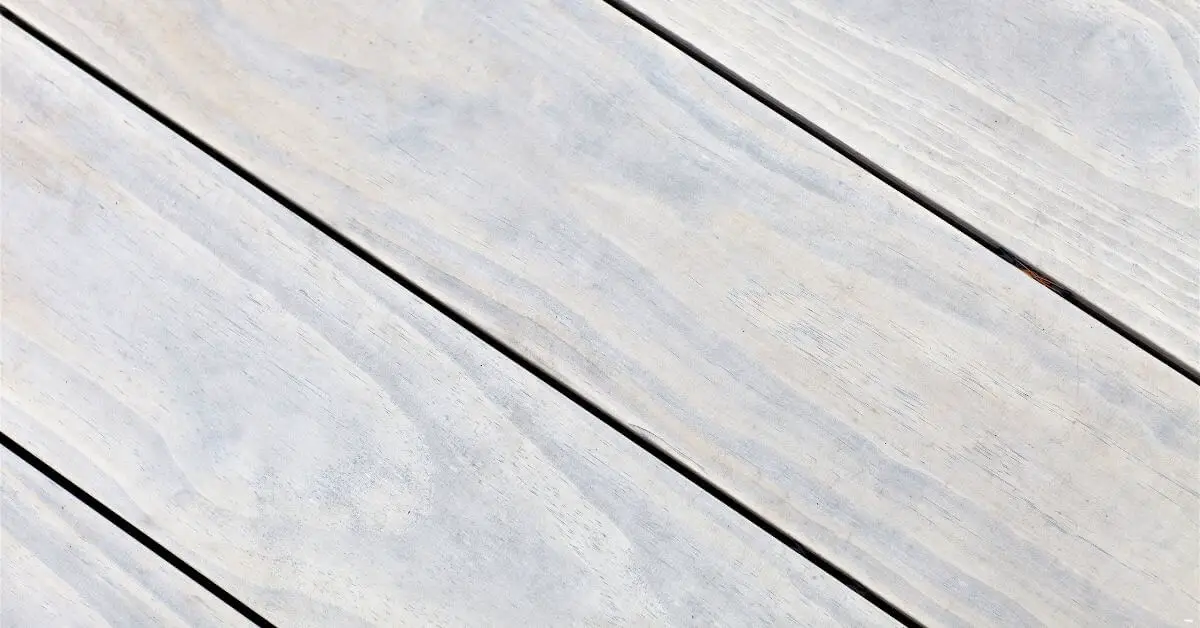Many people believe that Accoya wood is a type of wood species that can be obtained directly from the tree in the form of lumber. But this is not true; “Acetylation” is a process in which ordinary wood is processed to create a durable Accoya wood.
What is Accoya Wood?
Accoya wood is a specially treated and engineered type of wood. Compared to traditional untreated wood species, it is incredibly durable, stable, and sustainable. It is primarily made from sustainably sourced softwood, typically Radiata pine or Scots pine, and undergoes a proprietary wood modification process known as acetylation.
The process of acetylation involves treating softwood in vinegar. Due to this process, the wood behaves like hardwood and becomes very moisture-resistant.
The Accoya company offers a 50-year warranty on its “Accoya Wood,” which is very special. Additionally, the Accoya company claims their product is low-maintenance, ideal for coating, naturally insulating, Insect repellent, 100% recyclable and non-toxic.
What is Accoya Wood Used For?
Accoya wood is commonly used for window frames, doors, cladding, and decking.
Siding
Accoya wood is weather and moisture-resistant, making it an excellent choice for siding that withstands constant weather and sunlight. It ensures long-lasting and attractive.
Windows Frames and Doors
Accoya wood is used to make high-quality window frames and doors. Its dimensional stability prevents warping and cracking.
Decking
Accoya wood is used for decking due to its excellent resistance to moisture, rot and insects. It offers a beautiful appearance with natural grain and texture with low maintenance.
Cladding
Accoya wood is used to make interior and exterior wall cladding, providing stability and beauty.
What does Accoya Wood Look Like?

Accoya wood is usually gray silver gray from surface to core. During the acetylation process, its natural color changes from brown to gray/silver gray, But you will get the same texture and grain pattern as real wood.
Is Accoya Hardwood?
Accoya wood is technically derived from softwoods, specifically radiata pine or Scots pine. Therefore, we cannot say that Accoya wood is hardwood.
Is Accoya Better Than Hardwood?
No, it cannot be said that Accoya is better or worse than all hardwoods, but Accoya wood may be better than few hardwoods in some situations. Compared to most hardwoods, Accoya wood is less durable and requires more maintenance. After all, it is an engineered product made from softwood.
However, through the acetylation process, Accoya wood undergoes a process that increases the softwood’s durability, stability, and resistance to decay and pests.
The company claims on its website that Accoya wood is a more durable and low-maintenance product compared to other hardwoods such as sapele, oak, meranti, iroko, redwood and others.
Advantages of Accoya Wood
Stability
Accoya wood is designed to increase the stability of ordinary softwoods. It maintains its shape and size even when exposed to changes in humidity or temperature, whereas untreated wood is prone to warping, twisting or breaking.
Highly Durable
Accoya wood is known for its extreme durability. Manufacturing company offers a 50-year above-ground and 25-year warranty on the wood. We can compare Accoya wood in durability to highly durable woods like black cherry, black locust/honey locust, black walnut or cypress.
Versatile
Wood can be used in various applications, such as siding, windows, doors, decking, furniture, etc. Its adaptability makes it a versatile choice for a variety of projects.
Attractive Appearance
The best thing about Accoya wood is that it is 100% solid wood. So that we can get the same texture and natural color as real wood, it can be painted or stained like other solid woods, accepts paints and stains very well.
Resistance to Moisture and Insect
The Acetylation process reduces Accoya wood’s ability to absorb water, making it highly resistant to swelling, shrinkage, and moisture-related problems. This quality of wood is beneficial for outdoor and wet environments.
Accoya wood is resistant to insects and termites. The chemical treatment process protects it from insect and termite attacks.
Low Maintenance
Accoya wood requires minimal maintenance compared to most types of wood. It does not require frequent sealing or painting to protect it from the elements. It maintains its existence for a long time.
Disadvantages of Accoya Wood
Cost
Accoya wood is generally more expensive than many other wood species. The initial investment can be higher, which may not fit all budgets.
Limited Thicknesses
Accoya wood is often available in specific thicknesses, which may not suit all project requirements. Custom thicknesses may be more challenging to obtain.
Change Color
Due to prolonged continuous exposure to sunlight and changes in weather, the surface of Accoya wood can appear patchy. But the good thing is that its color becomes a uniform silvery gray with time.
Accoya Wood Cost
Accoya wood is relatively expensive. However, before rejecting its use on budget grounds, you should consider the long-term savings.
Accoya wood has durability and stability and can significantly reduce future repair and replacement costs, as Accoya requires less maintenance than other alternatives.
Is Accoya wood Waterproof?
No, Accoya wood is not waterproof, but it is more resistant to moisture and weather than untreated wood. Wood is less prone to swelling, warping and rotting when exposed to water. It is an excellent choice for applications where moisture resistance is essential, such as exterior decking, siding and windows.
Can you paint Accoya wood?
Yes, Accoya wood accepts paint well due to its smooth surface and ability to hold finishes effectively. Painting Accoya can provide aesthetic versatility and add an extra layer of protection against UV rays and moisture. Accoya must be dry, clean and dust-free when you paint it. After painting, let it dry thoroughly.

